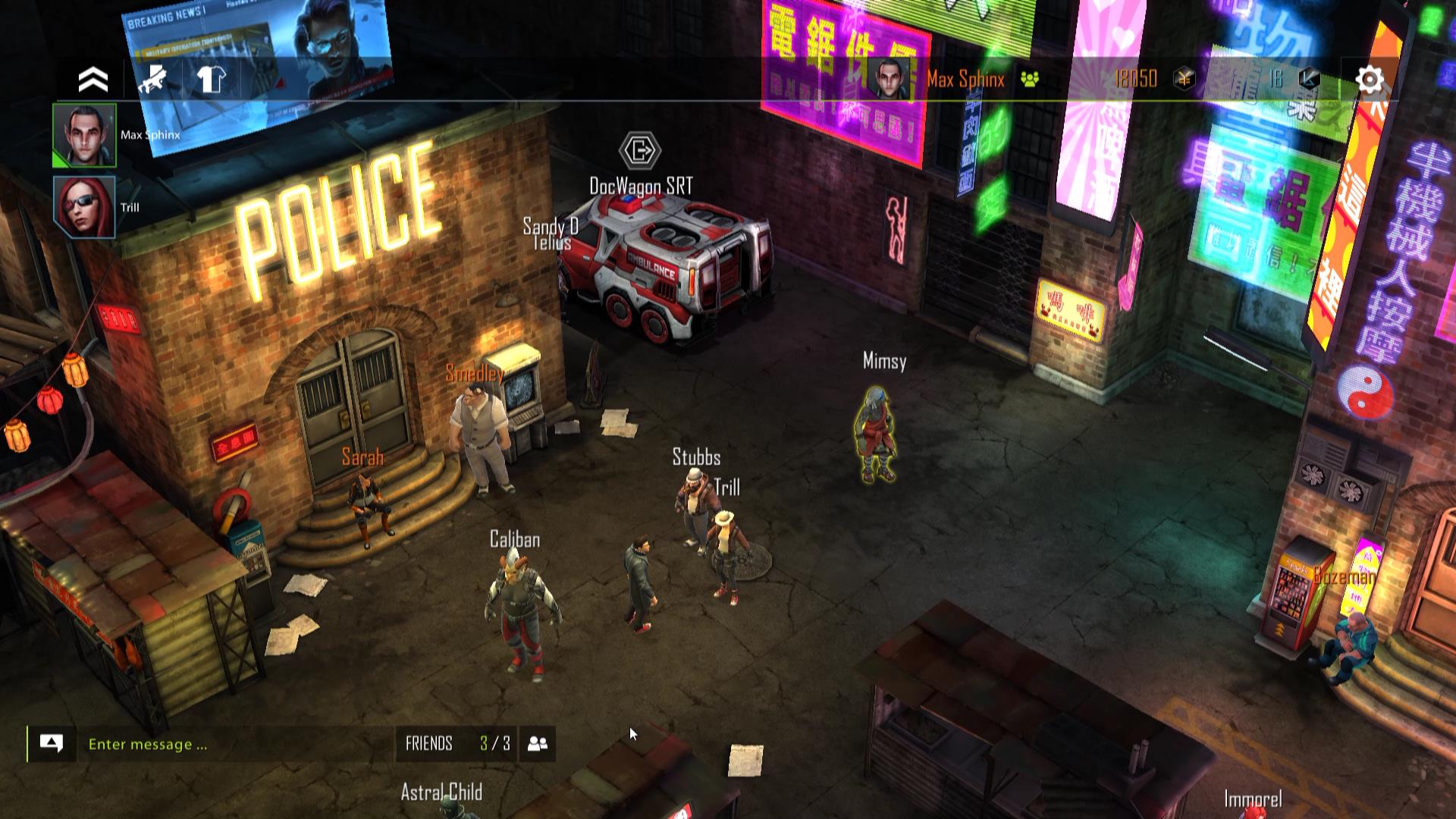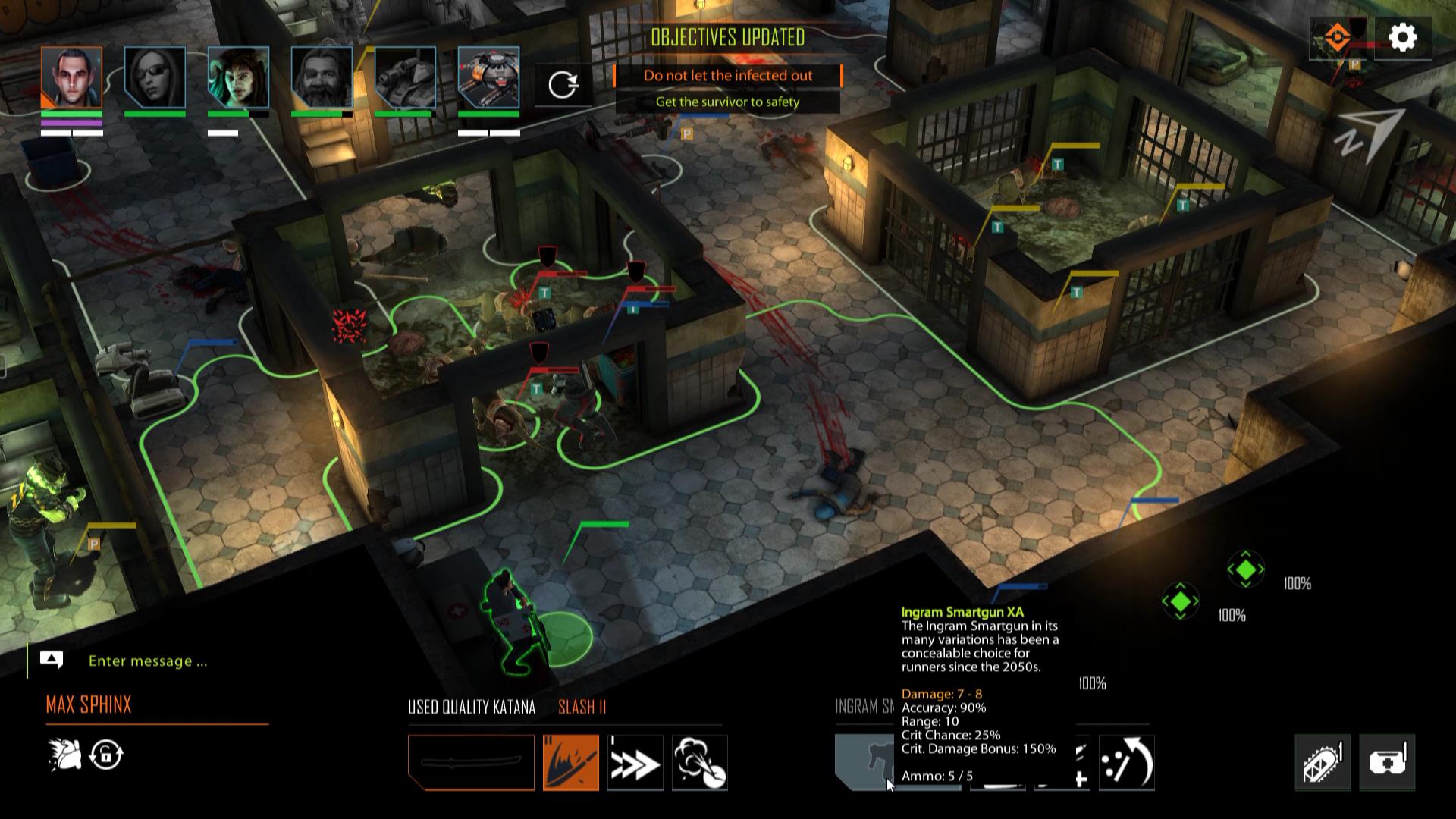Shadowrun Chronicles: Boston Lockdown is part of a recent trend of needlessly subtitling games, a trend that includes The Witcher 3: The Wild Hunt, Ark: Survivor Evolved, and the ultimate subtitled game, Warhammer: The End Times -- Vermintide, in which even the subtitle is subtitled.
A subtitle suggests that the game's makers hope to launch a franchise, but the reality is that the franchise almost never happens. In the case of Shadowrun Chronicles: Boston Lockdown, I hope that's wrong, because more of this would be a good thing for co-op gamers.
So what is Shadowrun Chronicles: Boston Lockdown? If you've played games like X-Com or Jagged Alliance, this game is based a similar brand of turn-based tactical action. The Shadowrun universe is like a mash-up of Tolkien fantasy and cyberpunk, where dwarves and elves escape a dystopian future by jacking into The Matrix. The setting originated in a 1989 tabletop RPG and has been developed into a series of video games, starting with Shadowrun for the Super Nintendo back in 1993 and most recently with the PC/Mac/Linux title Shadowrun Returns in 2013. These previous Shadowrun games have been more traditional CRPG games for their respective eras, but Shadowrun Chronicles: Boston Lockdown just has light RPG elements. You've got an RPG's talent tree and gear progression, but basically you're just marching through a series of combat-heavy main missions and a few side missions. While there's a story tying it all together, there's no open world, or exploration, or dialogue trees, or anything else that you might expect in a full CRPG.

The first thing I judge any co-op game on is how easy it is to get me and my friends into the same game. SC: BL gets a middling grade on ease of co-op setup. In theory, all you have to do is bring up your list of friends and invite them to your party. The problem is that sometimes people don't show up as online even though they are (and Steam shows them as in-game). One workaround I discovered is to have the supposedly missing friend say something in the global chat, then you can right click the name in the chat window and invite from there. If that doesn't work, the supposedly missing person has to leave the game and come back until they show up for the party leader.

Right off the bat, the main gameplay itself is a lot of fun. If you've ever played something like X-Com and thought, "boy, I wish I could play this with friends as squadmates," you're likely to enjoy this. Each turn, you can execute one of two actions per character, but once you attack your turn is done regardless. All the good guys actions happen first, then the bad guys move, and so on, but there's no set ordering of actions among you and your team. Anyone with an action left can act at any time, which creates some good possibilities for strategic teamwork. Maybe you need one player to use a stun grenade to keep a couple of bad guys on ice for one turn while everyone else beats on a boss, for example. Or, some attacks will leave an enemy marked, and those marks can be exploited by other player's abilities.
This is where having a voice communication with your friends like Mumble or Teamspeak really comes in handy. While you could use the game's text chat to coordinate actions, in my experience, it makes the game too slow and players will make their moves when they feel like it rather than negotiate through the chat window.
